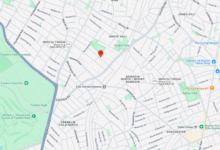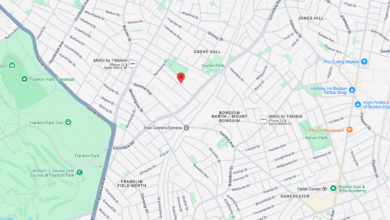Shapiro, who served as state Attorney General before being elected governor, emphasized that the federal government had broken a legal contract. He noted that he has already sued the Trump administration a few times in the last few months over attempts to freeze funding to programs in the state, and said he’d won every time.
In February he sued over the federal government’s suspension of $2 billion for environmental projects and other programs, which resulted in a court injunction and the unfreezing of the funds.
“I got a pretty good track record when I take Donald Trump to court. We’re going to win this, and we’re going to get our money back for the good people of Pennsylvania,” Shapiro said.
A USDA spokesperson said the agency does not comment on pending litigation and referred questions to the U.S. Department of Justice.
The governor only decided to sue after trying to work through an official USDA appeal process and reaching out to agency officials. State Agriculture Secretary Russell Redding went to Washington and met with USDA staff in a fruitless effort to reverse the contract cancellation, he said.
During a visit to a Lebanon County farm in April, U.S. Secretary of Agriculture Brooke Rollins argued that Pennsylvania actually already had federal dollars for farmers that it hadn’t spent, but Shapiro said that was incorrect — the state has to pay the farmers first and only receives the LFPA reimbursement afterward.
“I’m not sure if she was misinformed — I know she’s new at this — or if she was just making a whole lot of stuff up, but she said that Pennsylvania was sitting on, quote, ‘tens of millions of dollars’ in our food bank. That’s not true,” he said.
Pennsylvania Agriculture Secretary Russell Redding, left, spoke at a press conference at Share Food Program with Gov. Josh Shapiro. June 4, 2025. (Image via PAcast) The governor said he asked for help from Republican members of Congress who have affected food banks or farms in their districts, but they attacked him rather than trying to intervene with the USDA.
“It’s easy for me to brush off their nonsense. I deal with that every day. But it’s not easy for hungry people to be fed when their congressman ignores them. It’s not easy for our farmers to be able to make up that market share that our congressman made sure was taken away from them,” Shapiro said.
The governor’s office says Pennsylvania is one of the few states that spends LFPA dollars only on farmers within the state, with the goal of directly supporting the local agricultural economy. Shapiro’s budget proposal for the fiscal year that starts in July aims to further aid agriculture by boosting funding for the Pennsylvania Agricultural Surplus System and the State Food Purchase Program (SFPP) by $4 million each, bringing their total state support to $34.6 million.
However, the governor said local resources would not be able to make up for lost federal funds.
“Whether it’s LFPA, or SNAP, or Medicaid or any of the other things the federal government is cutting right now to make it harder for poor folks to get healthcare or get fed, we do not have the ability to backfill that in the state,” he said. “It’s on them. Those are the decisions they’re making in Washington, D.C. right now.”
Deep cuts to nutrition programs proposed
The lawsuit comes amid a broader effort by the federal government to cut billions of dollars from food and other social service programs.
For example, the USDA has told Share Food Program that it is also losing an additional $6.5 million worth of supplies that were supposed to be delivered through the Emergency Food Assistance Program, or TEFAP, Matysik has said previously.
The U.S. House reconciliation bill passed last month would cut nearly $300 billion over a decade from the Supplemental Nutrition Assistance Program (SNAP), including more than $1 billion annually for Pennsylvania. Nearly 2 million state residents, more than half of them children and seniors, benefit from SNAP, according to the state Department of Human Services.
The bill, which is likely to change in the Senate, would also reduce the number of schools where all students are eligible for free or reduced-price meals, and increase food costs for school districts, according to U.S. Rep. Mary Gay Scanlon. In Philadelphia, all public school students receive free meals under the current federal regulations.
“When we take food away from kids, we don’t just harm their health. We hurt their ability to learn, to thrive, and to succeed in the future,” Scanlon said at an event at Penrose Elementary School in Southwest Philadelphia on Monday.
The Republican plan would also expand “red tape” for work requirements for SNAP recipients, end food assistance for 50,000 immigrant children with lawful immigration status, and freeze increases to the Thrifty Food Plan, which spells out the cost of a health diet and helps determine SNAP benefit levels, Scanlon said.





















Go to the Arqam options page to set your social accounts.